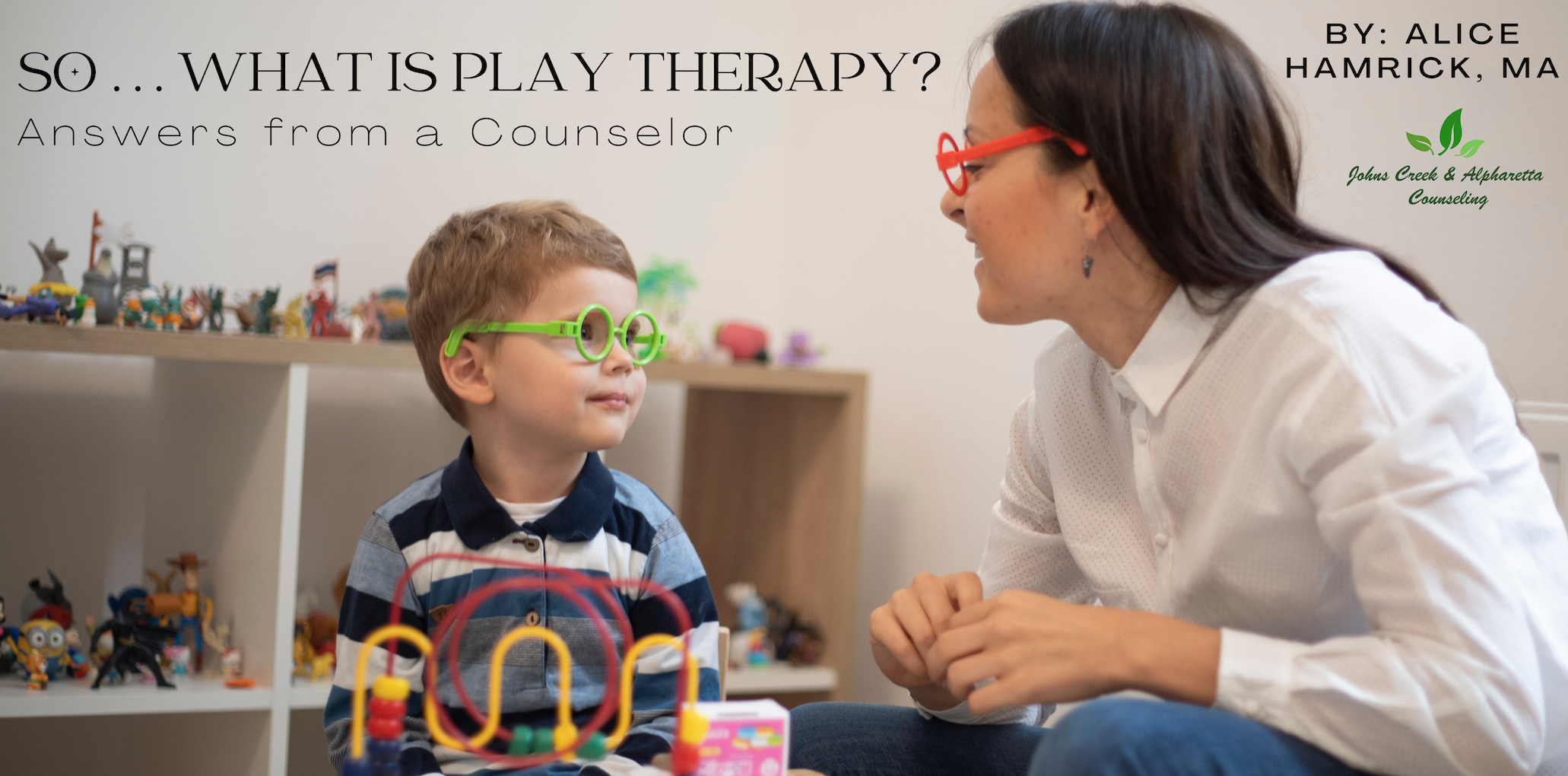
Are you just playing with my child?
The act of playing is more than just having fun. The act of playing is a time for exploration, discovery, connection, and deep learning. Play is a neural exercise and paramount for supporting brain development. It is a crucial attachment need, where we experience a fun playful exchange in our relationships. Through play, we experience bursts of oxytocin (the love chemical), thus creating and supporting connections in relationships. Additionally, other mood enhancing chemicals like dopamine, serotonin, and endorphins are released during playful activity.
What does play encourage my child to do?
Play encourages self-exploration through acting out different roles and identities. Imaginative and symbolic play enhances empathy and increases attachment. Play can help break tension between caregivers and families, play is what people do to cope. Through the reciprocal smiles and laughter, play supports emotional bonding and attunement. Play therapy supports the development of executive functioning skills like—making choices, emotion regulation, sustaining attention, initiating tasks etc.
How can I support my child outside of the therapy room?
One way is to play with your child and engage in the play exchange to strengthen attachment bonds. Validate your child’s feelings and connect with the emotions they experience. Show up in a predictable and consistent way to support secure attachments and create safety in the relationship. Lasty, look beyond the behavior, if we focus only on behaviors then we risk missing the rest of the child. Be curious of what the child is showing, they’re telling a story through action. Gary Landreth said it best, “Toys are children’s words and play is their language”.
ABOUT ALICE
Alice has a master’s degree in Clinical Mental Health from Northwestern University. She is passionate about working with children suffering from depression, anxiety, self-esteem, life-transitions, and trauma. She strives to make everyone feel comfortable and accepted as she works with children of many cultural and ethnic backgrounds.





